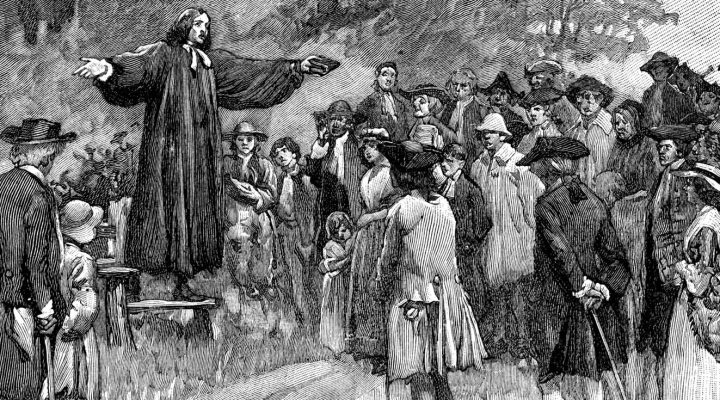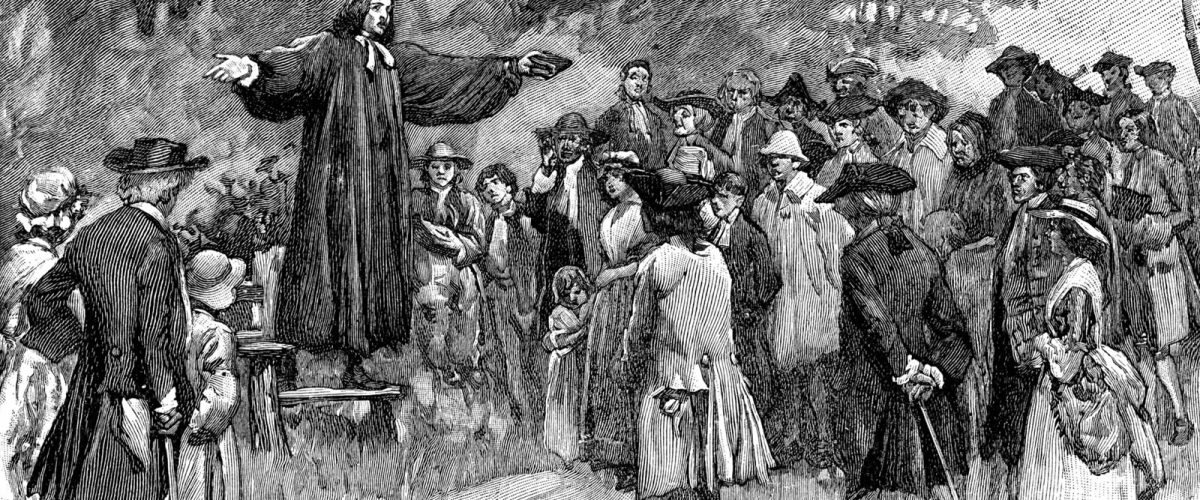Churches must tap into the core of their identity, as well as their calling to ministry, commitment to education and religious experience if they are to survive “permanent transition,” church historian Bill Leonard told participants at the Cooperative Baptist Fellowship’s 2022 General Assembly in Dallas.
“Constant cultural and institutional change has become the order of the day, with no sign of cultural stability. Given that, what is the church going to do?” asked Leonard, retired founding dean of the Wake Forest University School of Divinity and a leading historian of American Christianity. He led a breakout session titled “Permanent Transition: Seeking Spiritual Stability Amid Changing Cultures.”
“Changing sociology is impacting church,” he said, noting nonchurch activities, such as youth soccer, place demands on families, pulling them away from regular church attendance — something once unthinkable.

Bill Leonard
“Given that, how do Baptists make a case for believer’s church? And how do churches nurture new generations when church participation is intermittent at best and nonexistent at worst?” he asked. “What strategies might churches consider to respond to the reality of permanent transition?”
A documented change
Leonard cited research documenting the transition. For example, 29% of Americans are “nones,” claiming no religious affiliation, an increase from 16% in 2007. Conversely, the percentage of Americans who claim to be Christians declined from 78% to 63% across the past 15 years.
A Lifeway study found 4,800 U.S. churches closed in 2019, he said. And the median U.S. church attendance fell from 137 to 65 by 2021.
U.S. Christians should take such declines seriously, he said, noting, “We’re … a generation and a half from Sunday school being a vital and consistently attended program” to the current situation, with less than half of Americans (47%) identifying with a religion.
Church identity
In light of such declines, churches must consider how to respond to permanent transition, Leonard stressed.
“We must start with congregational identity. Who are we as the body of Christ?” he said. Although many Baptist churches claim the Baptist tradition, “we cannot suppose the people who attend our churches understand what that means.”
Although many Baptist churches claim the Baptist tradition, “we cannot suppose the people who attend our churches understand what that means.”
Even the label “Baptist” is fraught and problematic, he reported, explaining, “I keep hearing from churches struggling to decide whether to keep the name ‘Baptist,’ because it has been caricatured.”
Understanding congregational identity demands clarifying the specific needs not only of the church but also of the community, he said. And it involves understanding the church’s demographics.
It also means being honest about the church’s resources — and lack of resources — for ministry as well as identifying “the central issues of Christ’s gospel that energize and nurture you spiritually,” he advised.
Out of all that, churches must consider and develop a “manageable mission statement,” he said. “We must get at these questions: What does it mean to be the people of God in this particular place with this understanding of the gospel?”
Gospel identity and calling
Beyond congregational identity, churches must clarify their “gospel identity — the Jesus story,” Leonard said. This involves asking four key questions: “Are we teaching/preaching that story effectively? What aspects of that story are most important to our church? How do we invite persons into the Jesus story? What is our church’s ‘plan of salvation,’ and how do we make it known?”
“What is our church’s ‘plan of salvation,’ and how do we make it known?”
“This is doing what we used to call evangelization,” he continued. “How do we live it and how do we give it out — not only by our words, but by our actions?”
In addition to understanding their congregational and gospel identities, churches must grapple with their ministry, asking, “What is our calling in Christ in our community and beyond?” he said.
This involves assessing current ministries, but also evaluating ministry changes that need to be made, adjusted or even discarded, he asserted. Churches must ask, “How do we understand, engage and incarnate that ministry in our congregation and beyond?”
Leonard also called on churches to evaluate their Christian education programs — “gospel instruction for Christians old and new.” They must begin by refusing to take for granted that people in the church know the “gospel basics,” he added. “I’ve seen declining biblical knowledge, even by those who are biblical majors at the undergraduate level and seminarians in graduate school. Even these students say, ‘I didn’t grow up in church, hearing the story.’”
Declines in involvement in Sunday school are pressing churches to think creatively about religious education, he said, pointing to digital and online media as resources for teaching people, even without bringing them onto church campuses.
Declines in involvement in Sunday school are pressing churches to think creatively about religious education.
Churches need to capitalize on the opportunity for pastors to teach the Bible, and they cannot overlook the importance of linking Bible teaching to Bible interpretation, helping people learn to apply Scripture to their daily lives, he said.
Don’t overlook experience
Leonard called on Christians, especially church leaders, not to overlook the power of religious experience, especially in a “believer’s church.”
“What are the basic issues that draw people to and help them enter into God’s grace in Jesus Christ?” he asked. “Evangelistic folks, and particularly Baptists, have tended to make entering into faith a transaction” — walk the church aisle and say a prayer, he noted. But congregations can and should help people grow in their faith — what Christians have called sanctification.
And they should not discount the potential for sharing the gospel with people who do not currently claim to believe, he urged. Asking, “How do churches nurture spirituality in an era when many ‘nones’ seem to be seeking it?” can lead congregations to new approaches for reaching into their communities.
In that regard, they can take cues from 19th century Methodists and Baptists, whose membership exploded, especially in the American West, the historian said.
“Leaders ‘back East” worried not about secularism but about barbarism,” he recalled. They wanted to bring a Christian presence and moral identity to the Western frontier, and they (adapted) their evangelistic methods to match the needs and ethos of western pioneers.
They succeeded wildly and carried the methods into the 20th century, when those approaches became “less and less effective in communicating the gospel,” he said.
The challenge for the church today is to relinquish old methods of sharing the gospel that are declining in effectiveness and to think creatively about how to adapt its presentation of the gospel to the culture, he stressed.
Considering how the church will adapt to permanent transition, Leonard affirmed that God is ahead of the church and prepared for what is new. He quoted New Testament scholar John Dominic Crossan: “God is ready. It is not that we are waiting for God; God is waiting for us. The present kingdom is a (joint project) between the human and divine worlds.”
Related articles:
While the SBC shuns women as preachers, CBF celebrates a new generation of women as preachers
Ryan Burge sifts the data to paint an evolving portrait of the ‘nones’


